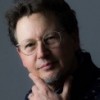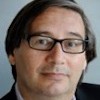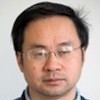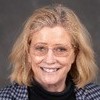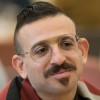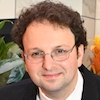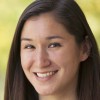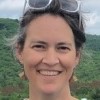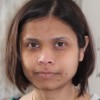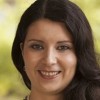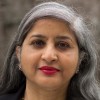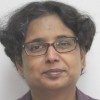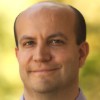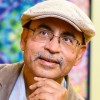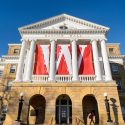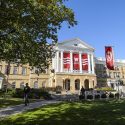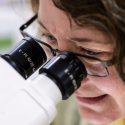Faculty receive WARF Named Professorships, Kellett Fellowships, and Romnes Awards
Thirty-two members of the University of Wisconsin–Madison faculty have been awarded fellowships from the Office of the Vice Chancellor for Research and Graduate Education for 2022-23. The awardees span the four divisions on campus: arts and humanities, physical sciences, social sciences and biological sciences.
“These awards provide an opportunity for campus to recognize our outstanding faculty,” says Steve Ackerman, vice chancellor for research and graduate education. “They highlight faculty efforts to support the research, teaching, outreach and public service missions of the university.”
The awards are possible due to the research efforts of UW–Madison faculty and staff. Technology that arises from these efforts is licensed by the Wisconsin Alumni Research Foundation and the income from successful licenses is returned to the OVCRGE, where it’s used to fund research activities and awards throughout the divisions on campus.
WARF NAMED PROFESSORSHIPS
WARF professorships come with $100,000 and honor faculty who have made major contributions to the advancement of knowledge, primarily through their research endeavors, but also as a result of their teaching and service activities. Award recipients choose the names associated with their professorships. Eight faculty are recognized this year.
Michael Bell, Philip D. Lowe Professor of Community and Environmental Sociology, whose work focuses on three themes: environmental sociology, agroecology and community, and is particularly centered on the social meaning of nature, especially its relationship to the social organization of inequality.
Mustafa Emirbayer, John Dewey Professor of Sociology and Social Thought, who joined the Department of Sociology at UW–Madison in 1999. His career has focused on sociological theory building, influenced most deeply by the philosopher, psychologist and educational reformer John Dewey.
Lisa Gralnick, Fred Fenster Professor of Art, whose work explores the use of jewelry as a conceptual reference point. She mines the history and cultural contexts of both adornment and gold, and as a goldsmith and sculptor, she has explored issues related to value and economics, intimacy and preciousness, and material culture in world history.
Song Jin, Francis J. DiSalvo Professor of Physical Sciences, whose research is focused on the chemistry, physics, and technological applications of nanoscale and solid-state materials. His research team is interested in the use of nanomaterials in renewable energy conversion, including photovoltaic and thermoelectric energy, and the applications of nanomaterials in biotechnology.
Shawn Kaeppler, Ransom A. Moore Professor of Agronomy, whose career has focused on crop breeding, genetics, genomics and biotechnology. Much of his research has been on maize, including research on the mechanisms of crop efficiency and productivity, and refinement of plant breeding methodology.
Shannon Kenney, Eva Therman Professor of Oncology, Wattawa Bascom Professor in Cancer Research and Professor of Oncology and Medicine, studies the molecular regulation and pathogenesis of Epstein-Barr virus (EBV), a virus that causes human cancers. Her research serves as a basis for potential new treatments of EBV-induced tumors.
Mark Saffman, Johannes Rydberg Professor of Physics and director of The Wisconsin Quantum Institute, who first began work on atomic physics and initiated a long-term effort to develop quantum computers. He is known for his research as a leader in the ongoing development of atomic quantum computers based on the Rydberg blockade mechanism.
Christopher Taber, James J. Heckman Professor of Economics and Walker Family Distinguished Chair in Economics, whose research focuses on the economics of education, earnings inequality and on non-experimental methods for policy evaluation. He is currently focused on the determinants of college dropout decisions and the market for teachers.
H.I. ROMNES FACULTY FELLOWSHIPS
The Romnes Fellowships recognize faculty with exceptional research contributions within their first six years from promotion to a tenured position. The award is named in recognition of the late WARF trustees president H.I. Romnes and comes with $60,000 that may be spent over five years.
Mercedes Alcalá Galán, professor of Spanish literature and culture and president of the Cervantes Society of America. Her most recent book explores the sexual and reproductive bodies of women in early modern Spain, while her research has also been oriented toward visual culture in Spain during that time period.
Ian G. Baird, professor of geography and director of the Center for Southeast Asian Studies. Most of his research, focused on fisheries and fish ecology, is centered in Laos, Thailand and Cambodia.
Ramzi Fawaz, professor of English and affiliated faculty in the Department of Gender, Women’s and Sexuality Studies. He explores the relationship between popular culture and social movements in the modern U.S. and is interested in the ways that movements for women’s and gay liberation, Black power, AIDS activism, and the third world left have used literature, film and visual media as vehicles for giving voice to commonly marginalized groups.
Mikhail Kats, professor of electrical and computer engineering. His research include optics and photonics, device physics, nanoscale science and quantum technologies, especially geared toward creating next-generation optical components to emit, modulate and detect light across the visible and infrared spectra.
Lori Kido Lopez, professor of communication arts and director of the Asian American Studies Program. Her research examines the way minority groups use media in the fight for social justice, and especially the ways grassroots/activist media, digital media and consumer culture play a role in transforming identities and communities.
Kate McCulloh, professor of botany. As a plant physiological ecologist, her research focuses on how trees tolerate stresses. Her projects have explored what factors cause the world’s tallest trees to stop growing and why some species die in severe droughts more than others.
Andrew Mehle, associate professor in medical microbiology and immunology. His lab studies the battle between cells and influenza virus, and in particular, how the virus exploits cellular processes, evades cellular defenses, and repurposes cellular machinery.
Darcy Padilla, professor of art. As a documentary photographer, she focuses on narrative and works on long-term projects about struggle and its trans-generational effects.
Sushmita Roy, associate professor of biostatistics and medical informatics and faculty at the Wisconsin Institute for Discovery. Her research focuses on computational methods to advance our understanding of the molecular basis of processes such as development, disease and evolution.
Nathan Sherer, professor of oncology and molecular virology and director of the UW–Madison Molecular and Cellular Pharmacology Graduate Program. He studies the cell biology underpinning the replication of HIV and other viruses.
Catalina Toma, professor of communication arts and co-chair of UW–Madison’s Teaching Academy. She examines the implications of new communication technologies on the interpersonal relationships of users and on their psychological wellbeing.
Haley Vlach, professor of educational psychology and director of the Learning, Cognition & Development Lab. Her research examines children’s cognitive development, including their ability to remember information, acquire language and construct concepts.
Victor Zavala, professor of chemical and biological engineering. His research focuses on computational mathematics and their application to energy, agriculture and sustainability. He is also working to foster more diverse, inclusive and equitable academic environments within the College of Engineering.
KELLETT MID-CAREER AWARDS
Eleven faculty have been honored with Kellett Mid-Career Awards to support those promoted to tenured positions seven to 20 years ago and who have made key research contributions in their fields. The award, named for the late William R. Kellett, a former president of the WARF board of trustees and president of Kimberly-Clark Corporation, provides support and encouragement to faculty at a critical stage of their careers and comes with $75,000 to be spent over five years.
Bernadette Baker, professor in the Department of Curriculum and Instruction. Her work draws upon multiple disciplines as they intersect with past-present curriculum debates, conceptions of knowledge, and social and educational inclusion/exclusion. Her research utilizes a variety of approaches in curriculum studies, educational history and philosophy, and contemporary policies and practices focused on well-being. She received a Fulbright fellowship and has led major national and international curriculum associations.
Barry Burden, professor of political science and director of the Elections Research Center. He studies electoral democracy and representation in the United States and his research examines the individual and systemic factors that influence voter turnout, the effects of election rules on campaigns and voters, and how the public understands the political world.
Kyoung-Shin Choi, professor of chemistry and co-founder of ChloBis Water, Inc. Her research integrates electrochemistry and materials chemistry and focuses on design, synthesis and characterization of semiconducting and metallic crystals and electrodes for use in the production of clean fuels using solar energy, (photo)electrochemical biomass conversion, and water treatment.
Aparna Dharwadker, professor of English and interdisciplinary theatre studies. She has expertise in British, postcolonial, modern Indian and contemporary world theatre. Her scholarship and teaching have focused on the complex effects of European colonialism in South Asia, Africa and the Caribbean.
Thomas Friedrich, professor of pathobiological sciences. Friedrich studies how RNA viruses like HIV, influenza, Zika, and SARS-CoV-2 overcome evolutionary barriers to jump between species, spread, and cause disease. His work has helped reveal the evolutionary forces that affect the emergence and spread of new viral variants, and he is working to track the patterns of SARS-CoV-2 transmission in Wisconsin.
Padma Gopalan, professor of materials science and engineering. She works on developing materials and strategies to address problems that reside at the interface of materials science, chemistry, chemical engineering and biology. This includes fabricating very small features for microelectronics, as well as materials for rapid expansion of therapeutic cell lines.
Jonathan Gray, Hamel Family Distinguished Chair in communication arts and professor of media and cultural studies. His work examines how audiences interact with entertainment media, paying particular attention to television as a cultural entity. He is also interested in audience dislike for specific media.
Somesh Jha, professor of computer sciences. He studies information security and the intersection of adversarial machine learning and privacy. He is also involved in the Center for Trustworthy Machine Learning at Penn State University.
Christina Kendziorski, professor of biostatistics and medical informatics. She develops statistical methods and software for genomic based studies of development and disease and is known for her widely used methods for RNA-sequencing studies. Kendziorski has also collaborated with a number of companies, including Nimblegen, ThirdWave Technologies, Eli Lilly and Merck Pharmaceuticals.
Gregory Nemet, professor of public affairs. He teaches courses in energy systems, environmental governance and policy analysis and his research focuses on how policy can stimulate innovation in environmental technologies. Nemet served as a lead author for the 2022 UN IPCC Climate Report.
Richard Townsend, professor of astronomy and department chair. He explores the structure and evolution of stars using an emerging technique known as asteroseismology, which utilizes fluctuations in stars’ brightness and color to shed light on their internal structures. He developed numerical codes that have been shared with research groups around the world under a free-software license and have become a standard tool for quantitative asteroseismology.

